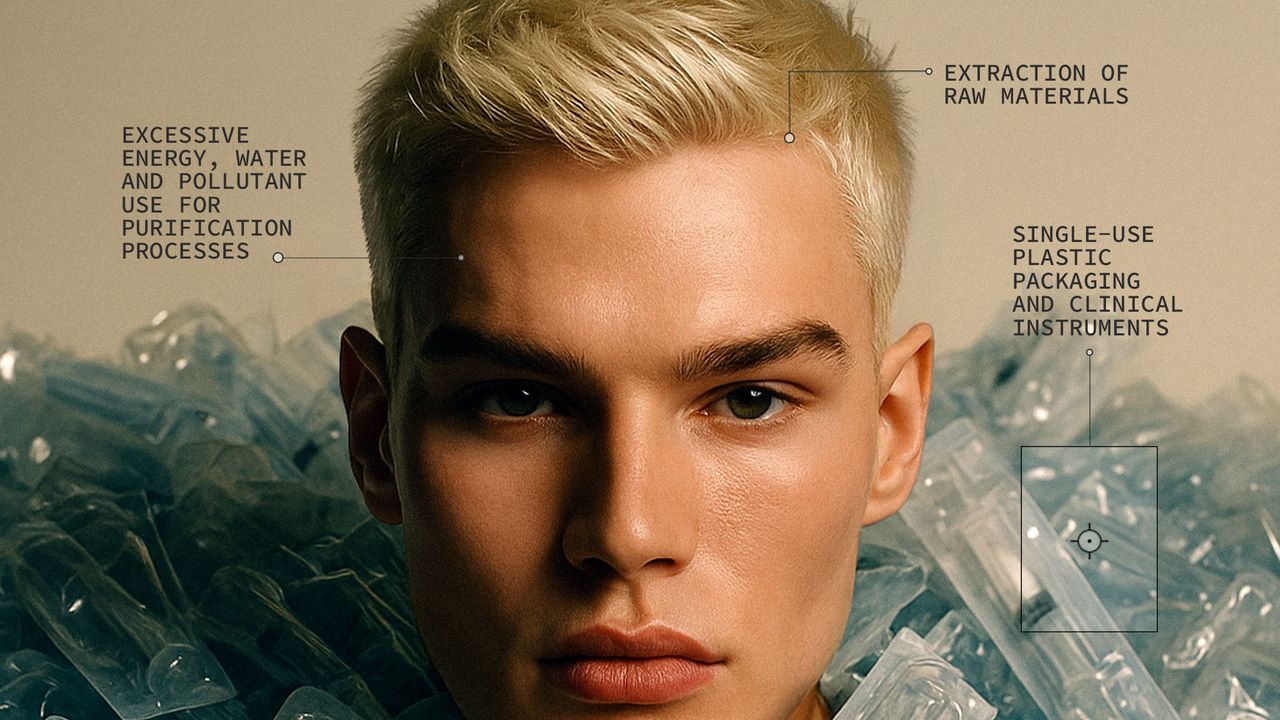The clinicians administering tweakments are not immune to this beauty culture, says DeFino. “Clinicians are just as heavily influenced by beauty culture as the consumer is, and they bring those perceptions and beliefs to their patients.” Then, there’s the profit motive to consider. The more filler clinicians sell, the more they get paid, whether the patient needs it or not. A few years ago, the repercussions on this became clear, when high-profile influencers started to dissolve their filler en masse. “The great filler dissolve” — as DeFino dubs it — revealed the dissatisfaction that can come from working with biased clinicians.
Like fast fashion, tweakments are part of an ever faster trend cycle. A decade ago, fillers and Botox made up the bulk of tweakments, says Collins. Now, there are so-called “skin boosters” like polynucleotides and exosomes, too. “When you look at a treatment menu, any given client will be having two or three treatments at least, and then maybe adding in other things like lasers and body treatments.”
DeFino contextualises these trends — and the associated rise in tweakments — with the instability of our current political climate. “Women’s rights and gender expression are under attack right now, and there is an impulse for people to control what they can, which might be their own body, through beauty,” she explains. “The US is also scrapping diversity, equity and inclusion (DEI) programmes, which includes women, and that makes beauty even more important. When you are in the job market, studies show that people who are considered more attractive get hired more often and make more money. These are all larger political issues where beauty becomes a bargaining chip. A lot of our beauty culture could be changed for the better through political action.”
Is there an antidote?
While there are plenty of parallels with fast fashion, the solutions aren’t necessarily the same. Transparency, for instance, is often touted as the first step towards accountability and progress in fashion supply chains. While it is important for the companies producing and administering tweakments to be transparent about their supply chains and practices, it can easily backfire in the consumer-facing beauty industry.
Some argue that influencers should be required to disclose any tweakments they have had done, especially where those treatments were discounted or gifted, in the same way they disclose other advertisements and partnerships. However, DeFino cautions that this gives people a blueprint for achieving a look rather than exposing it as unattainable. “Transparency should absolutely be the baseline, but it’s not particularly useful for dismantling beauty standards or reducing the pressure to adhere to them,” she adds. “A lot of plastic surgeons have told me they love the cosmetic transparency movement because they get so much business from it.”


